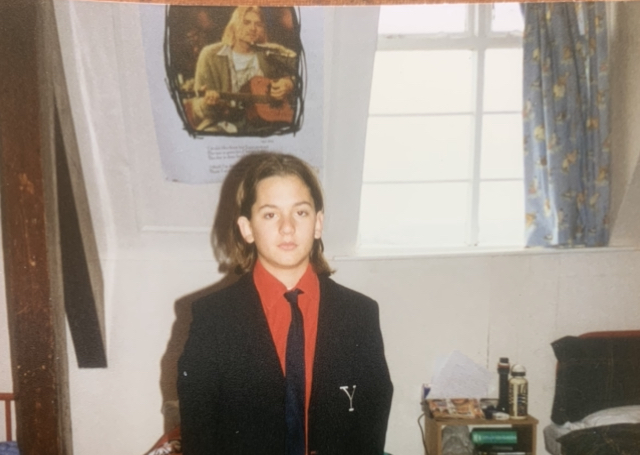“You can do better than that.”
I know my dad meant it well. I am aware that he thought I was special. But unfortunately, these good intentions caused a childhood wound I am dealing with up to this day.
Don’t get me wrong. I don’t blame my father at all. He didn’t know better. That’s how his generation was raised.
And I would like to point out that this mentality helped him achieve a lot in his life. Unfortunately, he died before he was 60. He was a successful businessman, but besides that, I have to assume that he wasn’t able to feel any joy outside of work.
I never wanted to be like that. He never wanted me to be like that. But his idea of supporting me by putting a lot of weight on my shoulders caused exactly that.
Since I was a child, I always felt that I could do better.
When I was 26, I gave up. I went to therapy. I was diagnosed with clinical depression and PTSD.
After that, I became a yoga teacher, wrote a book about my journey, and felt good about myself for the first time in my life. But then COVID-19 hit all of us. My life fell apart.
I lost my job as a yoga teacher. Actually, I didn’t lose it; it was worse than that.
I was offered to teach online. Nobody knew for how long this pandemic would change our lives. I thought it was temporary and tried my best. I was hoping that my efforts would get appreciated.
Unfortunately, I didn’t get paid for these online classes. But I understood that those were difficult times and did it anyway.
Then someone else saw my online classes and reached out to me. They asked me to teach but weren’t willing to pay much. But, of course, there were a lot of promises about the potential of the platform.
As mentioned, I tried my best. I was sure that my efforts would pay off.
But it didn’t pay off. And that wasn’t the first time in my life this happened. I know that it’s my fault.
The perfectionism caused by this childhood wound enables us to show up fully. It makes us try harder until we burn out. Why? Because we are always scared of not being good enough.
Trying our best is not a problem itself, but it becomes an issue when our sense of self-worth depends on it. And it gets even worse when we meet someone who knows how to trigger this wound.
I don’t even say that anyone ever did that on purpose. Some people might feel that expecting more from us is some sort of compliment—just as my dad did.
There is nothing wrong with believing in someone’s skills. There is also nothing wrong with motivating someone to do better.
I know that it’s my responsibility to set boundaries. But I also have to admit that I am not good at that. I am always scared that setting boundaries disappoints the ones believing in me.
To be honest, I don’t even know what to do about this. I share this because I am sure that I am not the only one feeling this way.
I am sure there are others out there who always try harder because of this childhood conditioning.
But here’s the deal: we don’t need to do that. No matter how hard we try, we will never feel accomplished. The only way out of this pattern is to be aware of it and learn to set boundaries.
And that might include disappointing someone in order to stop disappointing ourselves.
Nobody is perfect. Why do we even try?
 Share on bsky
Share on bsky






Read 12 comments and reply